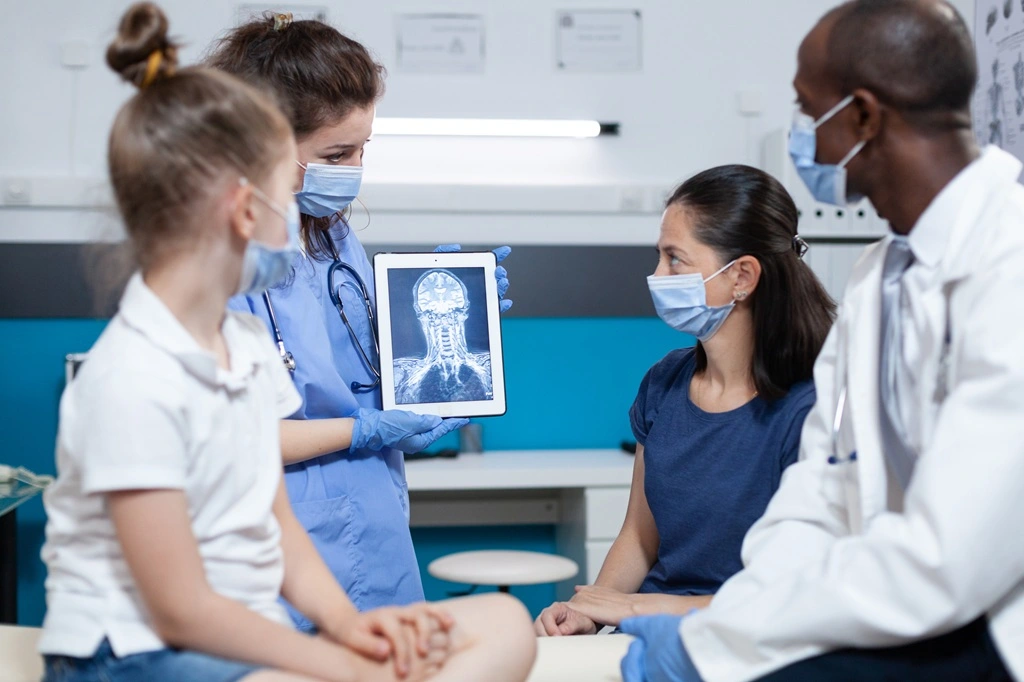Crafting a compelling resume is crucial for any medical professional looking to advance their career. In today’s competitive healthcare landscape, it is not enough for doctors to simply list their degrees and clinical experience. Recruiters and hospital administrators look for candidates who highlight both technical expertise and skills for doctor resume, reflecting not only medical knowledge but also the ability to collaborate, communicate effectively, and adapt to evolving healthcare environments.
For healthcare professionals aiming to enhance their medical careers or secure new positions, understanding the essential skills to include on a doctor’s resume is vital. This guide explores the critical skills doctors should highlight, provides tips on presenting them effectively, and demonstrates how a well-crafted resume can position you as a standout candidate in the healthcare industry.

Why Skills Matter on a Doctor’s Resume
A doctor’s resume is more than a summary of education and work history; it is a marketing tool that highlights your value to potential employers. While medical degrees and certifications demonstrate formal qualifications, skills for doctor resume convey your practical competence, adaptability, and essential professional qualities.
Key reasons why skills are crucial on a doctor’s resume include:
- Differentiation in a Competitive Market: Hospitals, clinics, and private practices often receive hundreds of applications for a single position. Highlighting unique skills can set you apart from other qualified candidates.
- Showcasing Practical Expertise: Skills such as diagnostic abilities, surgical proficiency, and patient management demonstrate how you translate knowledge into practice.
- Emphasizing Interpersonal and Leadership Qualities: Healthcare is inherently collaborative. Skills in communication, teamwork, and leadership signal your ability to navigate multidisciplinary environments effectively.
- Adaptability to Modern Healthcare Practices: With the increasing integration of digital health, telemedicine, and electronic medical records, skills related to technology and adaptability are highly valued.

Core Technical and Clinical Skills for Doctors
Technical and clinical competencies form the foundation of any doctor’s resume. Highlighting skills for doctor resume in this section reflects your ability to provide high-quality medical care and manage complex patient cases effectively.
1. Diagnostic Expertise
Diagnostic skills are essential for accurately identifying and treating medical conditions. This includes the ability to:
- Conduct thorough patient assessments and physical examinations
- Interpret lab results, imaging, and other diagnostic tests
- Recognize early signs of serious or rare diseases
- Apply evidence-based guidelines to inform clinical decisions
On a resume, you can highlight diagnostic expertise with examples such as:
- Diagnosed and managed complex cardiovascular cases with a 95% treatment success rate
- Interpreted imaging results for over 1,000 patients annually, improving early detection rates
2. Clinical Procedures and Surgical Skills
For doctors involved in surgical or procedural care, proficiency in technical procedures is critical. These skills vary depending on specialization but may include:
- Performing minimally invasive surgeries
- Administering injections, IVs, or biopsies
- Conducting endoscopic or laparoscopic procedures
- Managing emergency medical interventions
To present these on a resume:
- Detail the volume and types of procedures performed
- Highlight outcomes and patient satisfaction metrics
- Include certifications or specialized training
3. Patient Care and Management
Exceptional patient care extends beyond diagnosis and treatment. It encompasses holistic management, including:
- Developing personalized treatment plans
- Monitoring patient progress and adjusting care accordingly
- Coordinating with nurses, specialists, and support staff
- Ensuring patient safety and compliance with healthcare protocols
On a resume, patient care skills can be quantified by:
- Managing a caseload of 50+ patients per week with high satisfaction scores
- Implementing care protocols that reduced hospital readmissions by 20%
4. Medical Knowledge and Continuing Education
Healthcare is continually evolving, and staying updated with the latest medical research, technologies, and guidelines is crucial. Doctors should showcase:
- Knowledge of current clinical guidelines and treatment protocols
- Experience with evidence-based medicine
- Participation in continuing education programs, conferences, and certifications
Example for a resume:
- Completed advanced cardiology fellowship, integrating latest diagnostic and treatment techniques into clinical practice
5. Emergency Response and Critical Care Skills
Doctors, especially those in hospital settings, must handle critical and emergency situations effectively. Key skills include:
- Rapid decision-making under pressure
- Life-saving interventions, such as CPR and advanced airway management
- Coordinating multidisciplinary teams during emergencies
- Triage and prioritization in high-stress environments
Resume example:
- Led emergency response team managing trauma cases with a 98% patient survival rate
6. Technological Proficiency in Healthcare
The integration of technology in healthcare has transformed patient care. Doctors are increasingly expected to be proficient in:
- Electronic Health Records (EHR) management
- Telemedicine platforms
- Medical imaging software and diagnostic tools
- Health informatics and data analysis
Resume example:
- Implemented EHR system across multi-department hospital unit, reducing documentation errors by 30%
Essential Soft Skills for Doctors
While technical skills are critical, skills for doctor resume also encompass soft skills that often distinguish exceptional doctors from competent ones. These interpersonal abilities enhance patient outcomes, foster collaboration, and improve workplace dynamics.
1. Communication Skills
Effective communication is vital for doctors in all healthcare settings. This includes:
- Explaining diagnoses and treatment plans to patients and families in clear, empathetic language
- Documenting medical records accurately for colleagues and compliance purposes
- Facilitating discussions with multidisciplinary teams for coordinated care
Resume example:
- Conducted patient education sessions on chronic disease management, improving adherence rates by 25%
2. Empathy and Compassion
Empathy allows doctors to connect with patients, build trust, and provide care that addresses both physical and emotional needs.
Resume example:
- Provided compassionate care to palliative patients, enhancing quality of life and family satisfaction
3. Teamwork and Collaboration
Healthcare is a team effort. Doctors must work seamlessly with nurses, pharmacists, therapists, and administrative staff. Skills include:
- Coordinating patient care plans with multidisciplinary teams
- Resolving conflicts professionally
- Supporting and mentoring junior staff
Resume example:
- Collaborated with a team of 15 healthcare professionals to streamline patient discharge processes, reducing delays by 20%
4. Leadership and Management
Leadership skills are crucial for senior doctors, department heads, or those managing teams. These skills include:
- Supervising medical staff and trainees
- Making strategic decisions in clinical operations
- Leading quality improvement initiatives
Resume example:
- Headed a surgical unit, improving patient throughput while maintaining safety and quality standards
5. Problem-Solving and Critical Thinking
Doctors frequently encounter complex medical cases that require analytical thinking. Skills include:
- Evaluating symptoms and test results to reach accurate diagnoses
- Developing innovative treatment strategies for challenging conditions
- Balancing patient needs with hospital resources
Resume example:
- Developed a novel care pathway for diabetic patients, reducing complication rates by 15%
6. Time Management and Organization
Doctors must juggle multiple patients, emergencies, and administrative tasks efficiently. Effective time management ensures:
- Timely patient care without compromising quality
- Efficient workflow in clinical settings
- Prioritization of critical cases
Resume example:
- Managed daily rounds for 40+ inpatients while completing administrative reporting ahead of schedule

How to Present Skills Effectively on a Doctor Resume
Knowing which skills to include is one thing; presenting them effectively is another. Here are strategies for showcasing your skills for doctor resume:
- Tailor to the Job Description: Match your skills to the requirements listed in the job posting. Highlight those that are most relevant to the position.
- Use Action-Oriented Language: Start bullet points with strong action verbs like “led,” “developed,” “implemented,” or “managed” to demonstrate active contribution.
- Quantify Achievements: Where possible, use metrics to show the impact of your skills, such as patient satisfaction scores, procedure success rates, or efficiency improvements.
- Separate Technical and Soft Skills: Create dedicated sections for clinical expertise and interpersonal skills to give recruiters a clear view of your strengths.
- Include Certifications and Training: Highlight professional development that supports your skills, such as ACLS certification, specialized fellowships, or advanced procedural training.
- Integrate Skills into Professional Summary: The professional summary at the top of your resume is a prime location to highlight both technical and soft skills. Example:
“Board-certified internal medicine physician with 10+ years of experience providing patient-centered care, leading multidisciplinary teams, and implementing evidence-based treatment protocols to improve patient outcomes.”
Special Considerations for Healthcare Resume Writing
A well-crafted doctor’s resume should balance technical expertise with the qualities that make a healthcare professional effective and compassionate. Additional considerations include:
- Compliance and Ethics: Emphasize adherence to HIPAA regulations, patient confidentiality, and ethical standards.
- Adaptability: Highlight experience working in diverse clinical settings or adapting to new technologies.
- Professional Development: Continuous education, conference participation, and research contributions demonstrate commitment to growth.
- Publications and Research: For academic or research-oriented positions, showcasing published work can reinforce your expertise.
Professional healthcare resume writing services can help structure skills for doctor resume effectively, ensuring your resume not only lists qualifications but tells a compelling story of your career achievements and capabilities.

Enhance Your Medical Career with a Strong Resume
A doctor’s resume is more than a record of experience; it reflects your expertise and professional identity. Highlighting both technical competencies and skills for doctor resume—such as diagnostic expertise, procedural proficiency, patient management, leadership, and interpersonal strengths—positions you as a well-rounded candidate, sets you apart from others, and opens doors to diverse healthcare opportunities.
Crafting a resume that balances these skills requires strategy and attention to detail. Professional healthcare resume writing services can help present your achievements and experience in a polished, ATS-optimized format, ensuring your resume reflects both your qualifications and versatility. With a carefully crafted resume, you can effectively showcase your medical expertise and position yourself for the next step in your healthcare career.
Frequently Asked Questions
What are the most important skills to put on a doctor resume?
Doctors should prioritize clinical care, diagnostic accuracy, procedural competence, EHR proficiency, and patient communication. Leadership, empathy, and teamwork add depth that employers highly value across U.S. healthcare environments.
Do hospitals use applicant tracking systems to screen doctor resumes?
Yes. Many U.S. healthcare systems use ATS to scan applications. Including skills that match job descriptions, such as telemedicine expertise or specific procedural competencies, increases visibility and helps resumes advance to hiring managers.
How can physicians demonstrate soft skills on a resume?
Soft skills should be embedded into work history bullet points. Instead of simply stating “strong communicator,” a physician should quantify achievements such as improved patient adherence rates after treatment counseling.
Should international medical graduates list technical skills differently?
International graduates should emphasize U.S. system-related competencies such as EHR and HIPAA compliance. This ensures recruiters understand their ability to adapt to American healthcare standards.
How many skills should be listed on a doctor resume?
Typically, 8–12 targeted skills are sufficient. Too many can dilute the impact. The focus should be on strategic alignment with the job description while avoiding overcrowding the resume.
